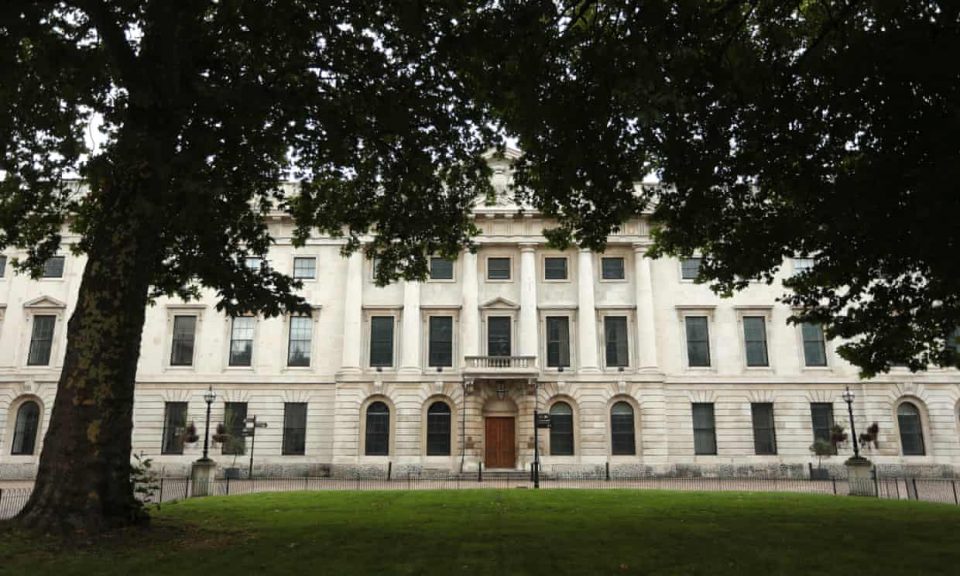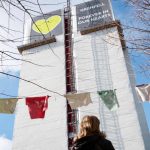Over a thousand demonstrators are slated to protest against China’s planned new “super-embassy” in London on Saturday, ahead of a pivotal decision from the government.
The rally against the embassy, which has escalated into a significant diplomatic conflict between the UK and China, is set to occur at Royal Mint Court, a historic location close to the Tower of London.
China intends to develop 20,000 square meters (approximately 2 hectares) at Royal Mint Court into the largest embassy in Europe. The Chinese government purchased the site in 2018, but in 2022, Tower Hamlets council denied planning permission due to various concerns, including the potential for large-scale protests in the area. The Conservative government opted not to get involved.
Following Labour’s victory, Beijing reapplied for the project, which was subsequently called in by the government after Chinese President Xi Jinping directly discussed it with Keir Starmer. Key cabinet figures, including Yvette Cooper and David Lammy, have voiced their support, and a local inquiry is set to commence next week.
Local residents have rallied against the proposed embassy, organizing the protest in conjunction with campaign groups representing Uyghurs, Tibetans, Hong Kong activists, and Chinese dissidents.
Several politicians, such as shadow justice secretary Robert Jenrick, shadow security minister Tom Tugendhat, and Labour MP Blair McDougall, are expected to speak at the demonstration.
McDougall remarked, “We need to establish clear boundaries in our dealings with Beijing. At present, Jimmy Lai, a British citizen, is imprisoned for exercising rights guaranteed by the agreement between the UK and China. £2 billion of savings belonging to British Hong Kongers have been misappropriated. We should not offer any concessions to Beijing while they violate prior agreements.”
According to Mark Nygate, treasurer of the Royal Mint Court Residents Association, residents feel that the embassy proposal is being advanced for political motivations, neglecting community concerns. “We’re all dissatisfied with how the government has handled this matter – it appears to have usurped the inspector’s role,” he stated.
“They requested a public inquiry, appointed an inspector, and then suddenly, David Lammy and Yvette Cooper are sending a letter to the council indicating their approval of the scheme based on just a few modifications … But the potential damage to my property and the neighborhood is considerable.”
Organizers have alerted the Metropolitan Police about the expected attendance of over 1,000 individuals, with coaches arriving from Manchester, Liverpool, and Scotland.
The Met initially raised an objection to the project in November, highlighting insufficient space in front of the proposed embassy to safely accommodate more than 100 protestors and potential impacts on local traffic and public safety. However, the police later retracted their objection based on a 2022 report by the Chinese embassy, which estimated that nearly 2,000 individuals could safely protest on-site, and up to 4,500 in the surrounding areas.
In December, Tower Hamlets council reaffirmed its opposition to the project, stating that with the Met’s withdrawal of its objection, it could no longer depend on the earlier evidence, yet it has not officially revised its stance.
The protest organizers comprise various Hong Kong advocacy groups, the World Uyghur Congress, the Inter-Parliamentary Alliance on China, and the Global Alliance for Tibet and Persecuted Minorities.
Their goal is to demonstrate that the Met was correct in its initial assessment that the embassy would likely become a focal point for large protests that could not be safely managed. The planning inspector responsible for evaluating the application has been invited to attend.
The local inquiry regarding the proposal will commence at the planning inspectorate on Tuesday and may run for up to six days. The ultimate decision will be made by Angela Rayner, the deputy prime minister and housing secretary.


